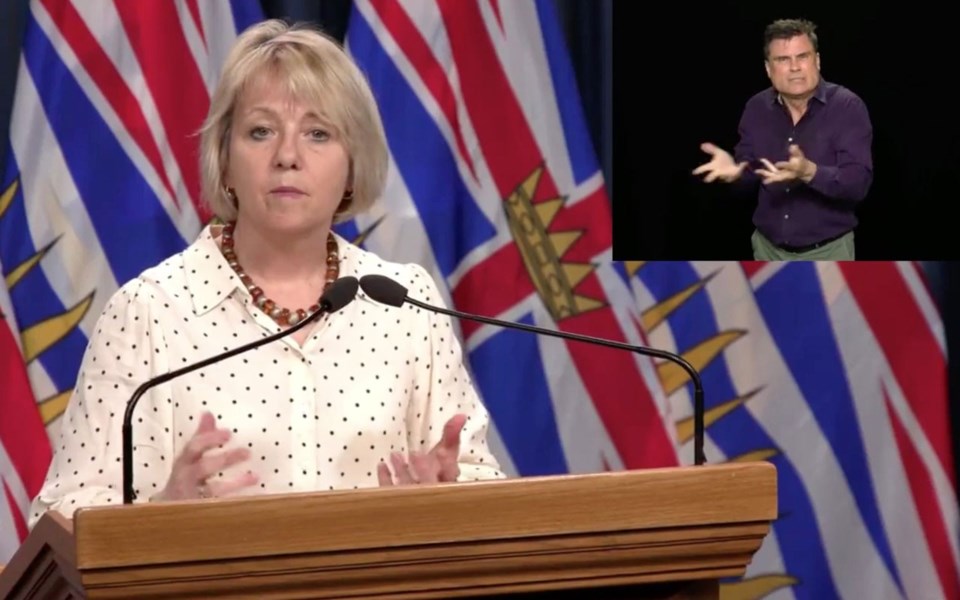There are now 2,694 cases of the coronavirus (COVID-19) in B.C. after health officials announced 14 new cases Thursday.
Provincial health officer, Dr. Bonnie Henry reports that there are 917 cases in Vancouver Coastal Health (VCH), 1,386 in Fraser Health, 130 on Vancouver Island, 195 in Interior Health and 66 in Northern Health.
There have been no new outbreaks at long-term care facilities in Vancouver. In total, five long-term care or assisted-living facilities continue to have active outbreaks.
There have been no new community outbreaks, and public health teams are providing support for the ongoing community outbreaks.
Henry says the Kearl Lake outbreak in Alberta is "winding down" and that it is expected to be over early next week.
While there are still a number of active community outbreaks, Henry said Monday that the outbreaks at Fraser Valley Specialty Poultry and Superior Poultry have now been declared over.
There have been no new deaths for six consecutive days. In total, there have been 167 fatalities from COVID-19 in B.C.
There are currently 13 people in acute care in hospital and five are in intensive care.
There are 183 active cases of COVID-19 in the province, and 2,344 people who tested positive have recovered.
Henry states that the coroner's office announced 170 overdose deaths in B.C. in the month of May: "I cannot express how difficult this news has been to hear."
Henry adds that the pandemic has stretched the province's resources and that there has been a dramatic increase in the toxicity of street drugs.
"We know that using alone right now has been exceedingly deadly," she said.
“Through our active surveillance and testing, we have recently identified two community clusters of COVID-19 associated with large family connections," said Henry on Wednesday. “This tells us that our public health teams are quickly identifying new cases. It also tells us that while our overall provincial cases may be low, COVID-19 is active and spreading in our communities.
Henry adds that the risk of transmitting the virus increase when households are brought together, regardless of how many people that may include: “This is why fewer faces and bigger spaces needs to continue to be our guidepost for how we move forward."
Henry emphasizes that if you are someone who works in our health-care system, someone for whom essential travel is required or live in the same household with essential workers, it is very important to continue to limit your other social interactions so you don’t spread the risk around.
“Anyone coming across our border from the United States is coming from a high-risk area and needs to take full precautions to avoid inadvertently spreading the virus to your family or community in Canada," she notes. “If you are returning from university elsewhere in Canada, it is important to monitor yourself closely for symptoms, as some other parts of Canada are also experiencing community clusters and spread.
“A COVID-19 test when you are asymptomatic is ineffective and is not your passport to increase your social circle. Following all of the rules for safe physical distancing and wearing a cloth mask when you can’t keep those distances is.
“Monitor, manage and modify are going to be the keys to managing COVID-19, by keeping our communities safe and protecting the ones we care for most.”




